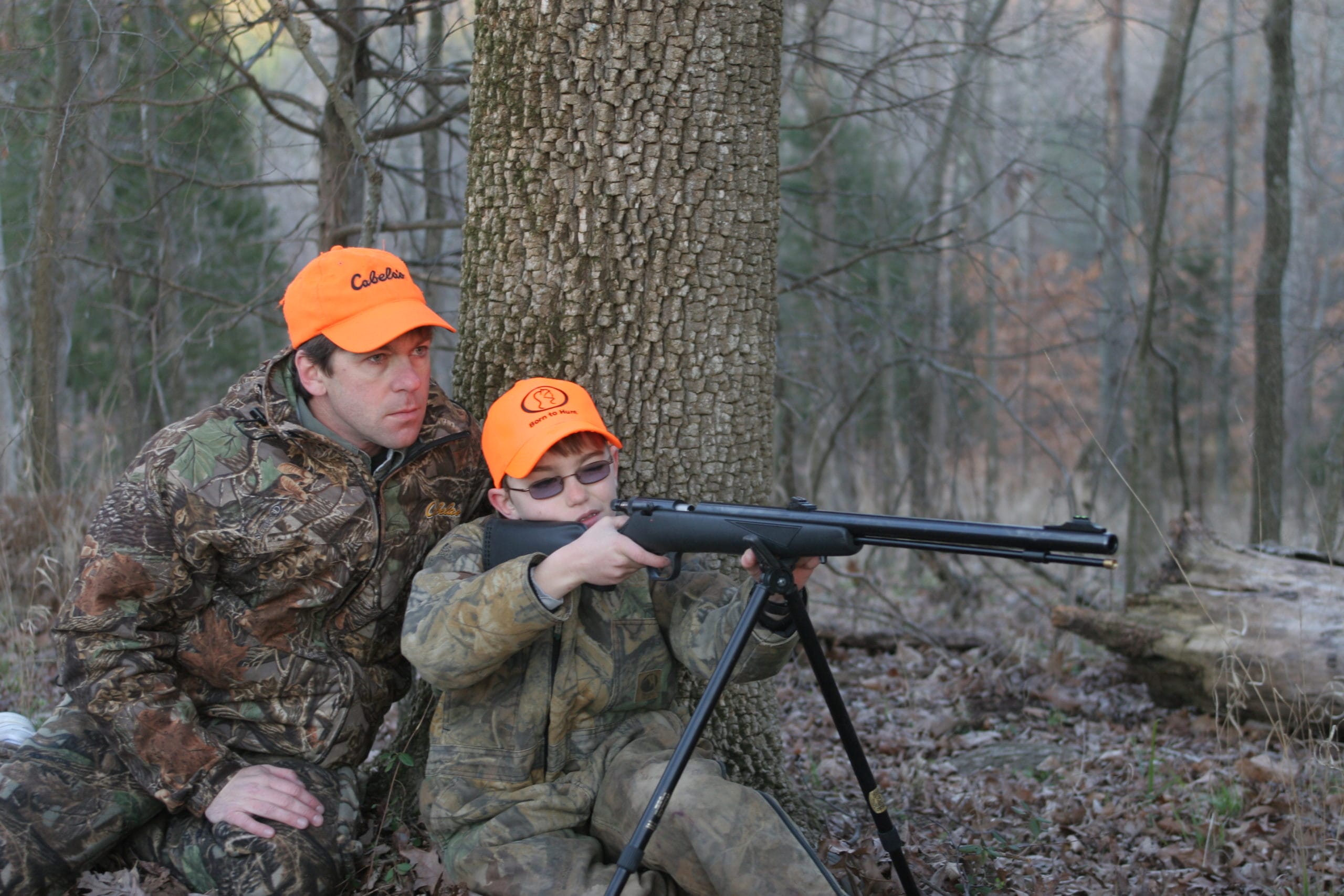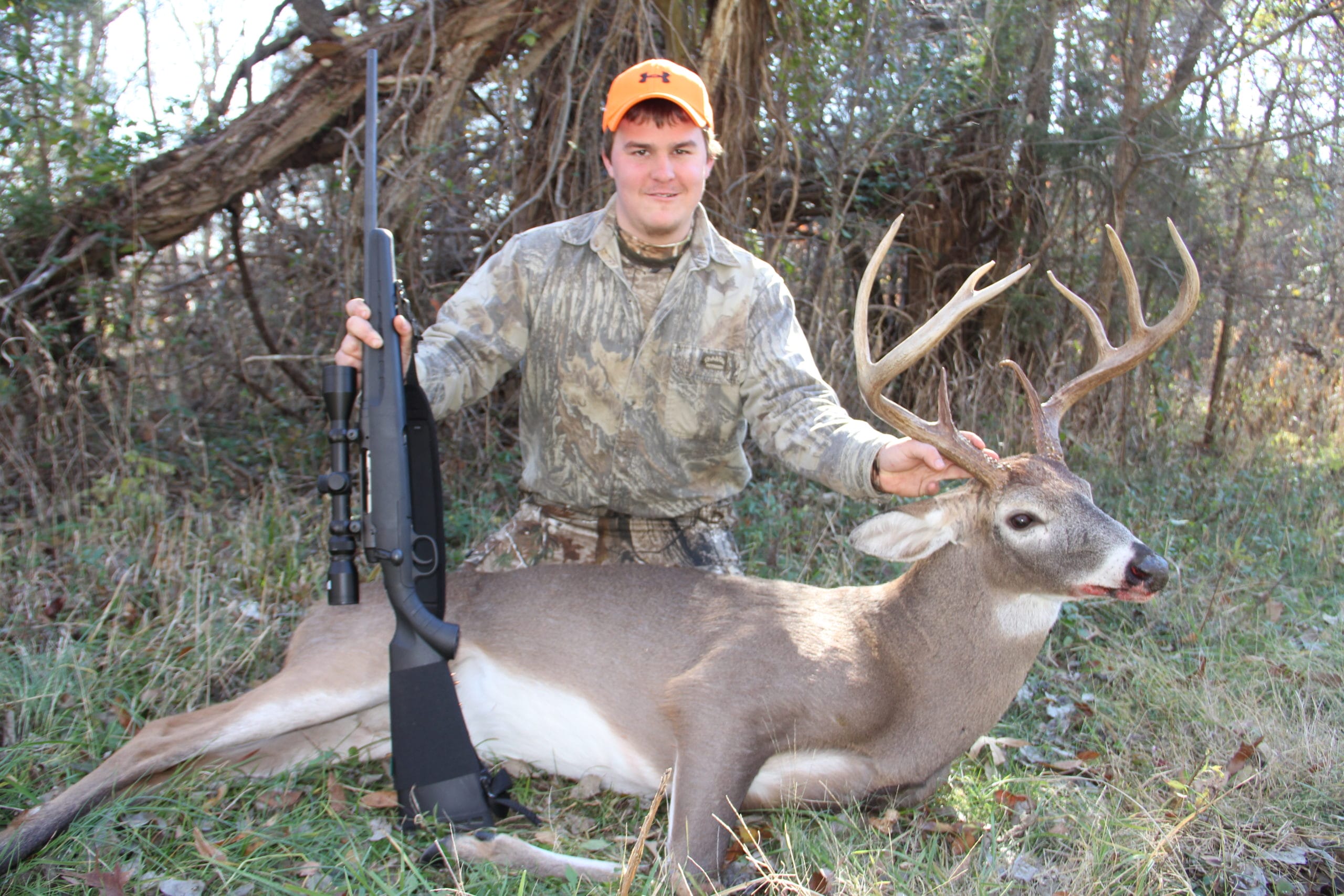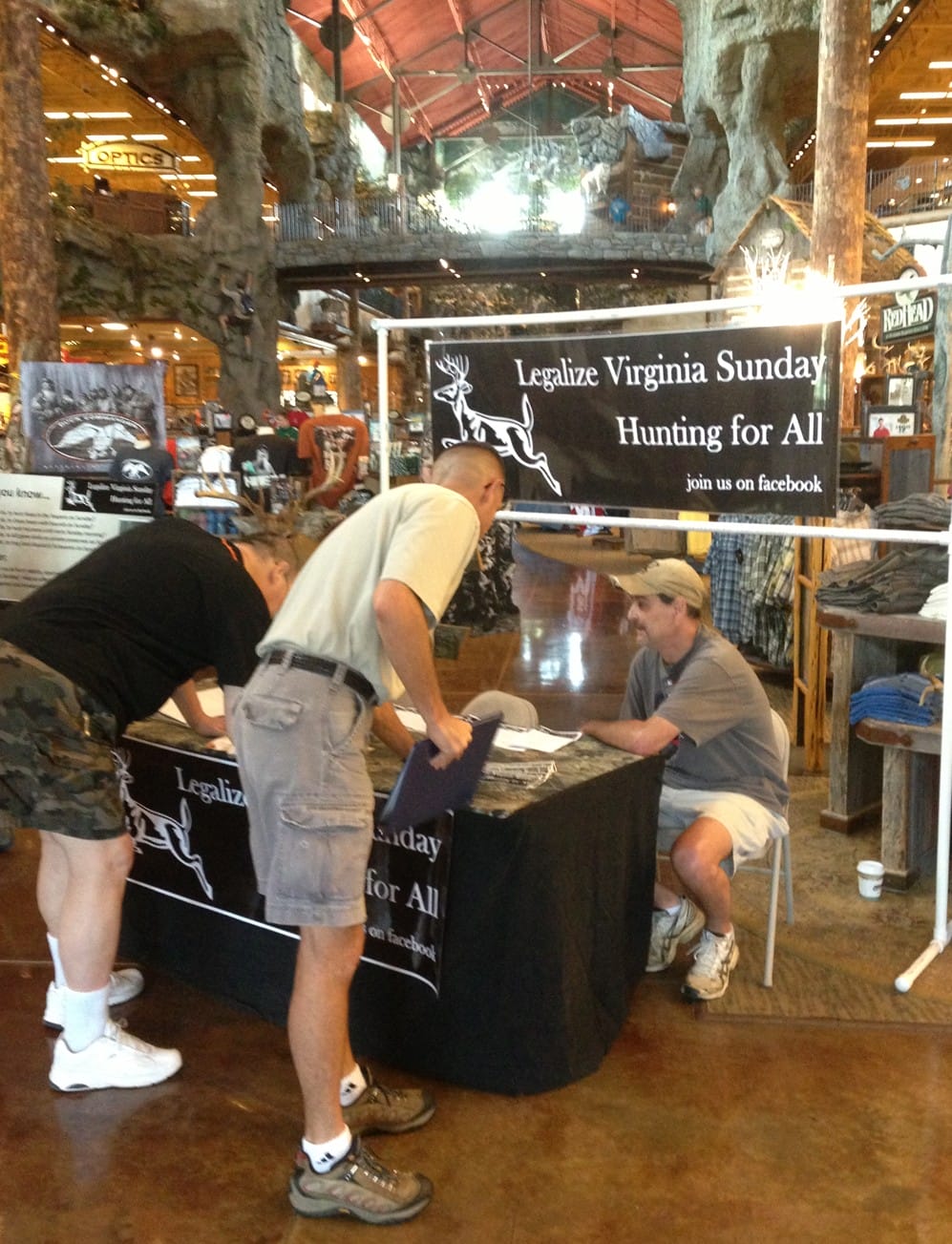by David Hart
If you were standing outside on February 18, 2014, you might have heard a collective cheer coming from fields and forests of Virginia.

The addition of Sunday hunting will give parents the freedom to take their kids more often. As hunter numbers decline, it’s vital to instill the hunting ethic in the next generation.
That’s when the state legislature passed a bill legalizing Sunday hunting for the first time in modern history.
That leaves a shrinking number of states—West Virginia, North Carolina, Maryland, Connecticut, Delaware, Maine, South Carolina, Massachusetts, New Jersey and Pennsylvania—with total or partial bans on Sunday hunting.
Sunday hunting remains illegal on public land in Virginia, a compromise to appease the hikers, bird watchers and horseback riders who were active and vocal in their opposition.
Why The Hate?
Despite the compromise by advocates on public land, those groups continued to fight against the bill to legalize Sunday hunting, claiming their lives were at risk by simply walking or riding on a trail. What they failed to realize (or admit) is that sharing the woods with a hunter is far safer than driving to the trail or riding a horse.
It isn’t just non-hunters and anti-hunters who oppose Sunday hunting. Unbelievably, some hunters are against it. The Virginia Hunting Dog Alliance, a group that consists primarily of hunters who use hounds to run deer, fought the bills every year they were brought up. Their logic? A position paper on the VHDA’s web site cites everything from religion to the notion that game animals need a day of rest.
Some Pennsylvania hunters fear landowners who currently grant hunting permission would stop if Sundays became just another day to hunt.
“That argument frustrates me to no end,” says Virginia resident Matt O’Brien, who organized a Facebook page dedicated to lifting the ban in his home state. “If a landowner doesn’t want anyone hunting on Sunday, all he has to do is say so. It’s his land.”

No hikers or horseback riders were injured during this hunt! Despite the fear-mongering from Sunday hunting opponents, outdoor user groups all find a place to take part in their favorite activities, even on Sunday.
Slow Progress
Virginia may have been the most recent state to lift the long-standing ban, but it likely won’t be the last. However, it could be a while before places like Pennsylvania, Massachusetts and Maine enjoy the freedom given to Virginia hunters.
Opposition from a variety of groups remains strong in those and other states. Sadly, many hunters remain complacent.
“I think a lot of people think it’s a losing cause, so they don’t bother. Or they don’t grasp the importance of the additional day, but a lot of people work six days a week, so their only opportunity is on Sunday,” says O’Brien. “The addition of Sunday could help increase hunters participation at a time when hunter numbers are declining.”
A study by the National Shooting Sports Foundation (NSSF) found the addition of Sunday hunting in the states where it remains illegal would result in the addition of 27,000 new jobs and an overall economic impact of $2.2 billion.
The direct impact alone in Pennsylvania would add more than 4,400 jobs.
Make It Happen
O’Brien says it wasn’t just a grassroots effort that helped pass Sunday hunting in Virginia. The NRA and the NSSF were busy working the state legislature, putting pressure on specific law makers and educating the rest of the state capital.
However, neither group would have gotten involved if O’Brien didn’t build an active and vocal grassroots network through social media. By the time the movement gained full momentum, he gathered 6,000 members on the Facebook page dedicated to the cause.
Many were active in writing letters not only to their state representatives, but to local newspapers and web sites countering the various hollow arguments used in opposition to Sunday hunting.
“We had the facts on our side, and I think we did a very good job getting those facts out to the public,” says O’Brien. “Lots of people were very active in the grassroots effort.”

Hunters must first convince their fellow sportsmen that winning the Sunday hunting battle can be done. It starts with grassroots efforts like this one, which took place at Bass Pro Shops near Richmond, Virginia.
Equally important, he adds, is that the fight was framed around private property rights. Why isn’t a landowner allowed to participate in an activity that’s legal six days a week on the seventh day? What’s so different about Sundays?
“There was no valid argument against the property rights issue,” he adds.
It was an argument that helped win the fight in Ohio, which lifted its blanket ban on Sunday hunting in 2002. None of the dire predictions put forth by opponents came true. Even farmers, one of the most vocal opposition groups, ultimately embraced Sunday hunting.
O’Brien suggests hunters in other states organize through social media and undertake an active and honest public relations campaign. Supporters in Virginia set up booths at outdoors shows, even major outdoor retailers in an effort to gain support.
“Every time you see a story about Sunday hunting, write a letter to the editor or on the comments section setting the record straight. Talk to as many people as you can and use facts to support the cause,” he says.
“I think it will eventually come to the states that don’t have it yet, but only if hunters organize, unite and become active in their push to legalize something that should be legal.
“Forty other states allow it,” O’Brien said. “The world keeps spinning, and everyone gets along just fine.”
The Union Sportsmen’s Alliance website is designed to provide valuable articles about hunting, fishing and conservation for members of AFL-CIO affiliated labor unions and all sportsmen and sportswomen who appreciate hunting and fishing and want to preserve our outdoor heritage for future generations. If you would like your own story and experience from the outdoors to be considered for our website, please email us at [email protected].







